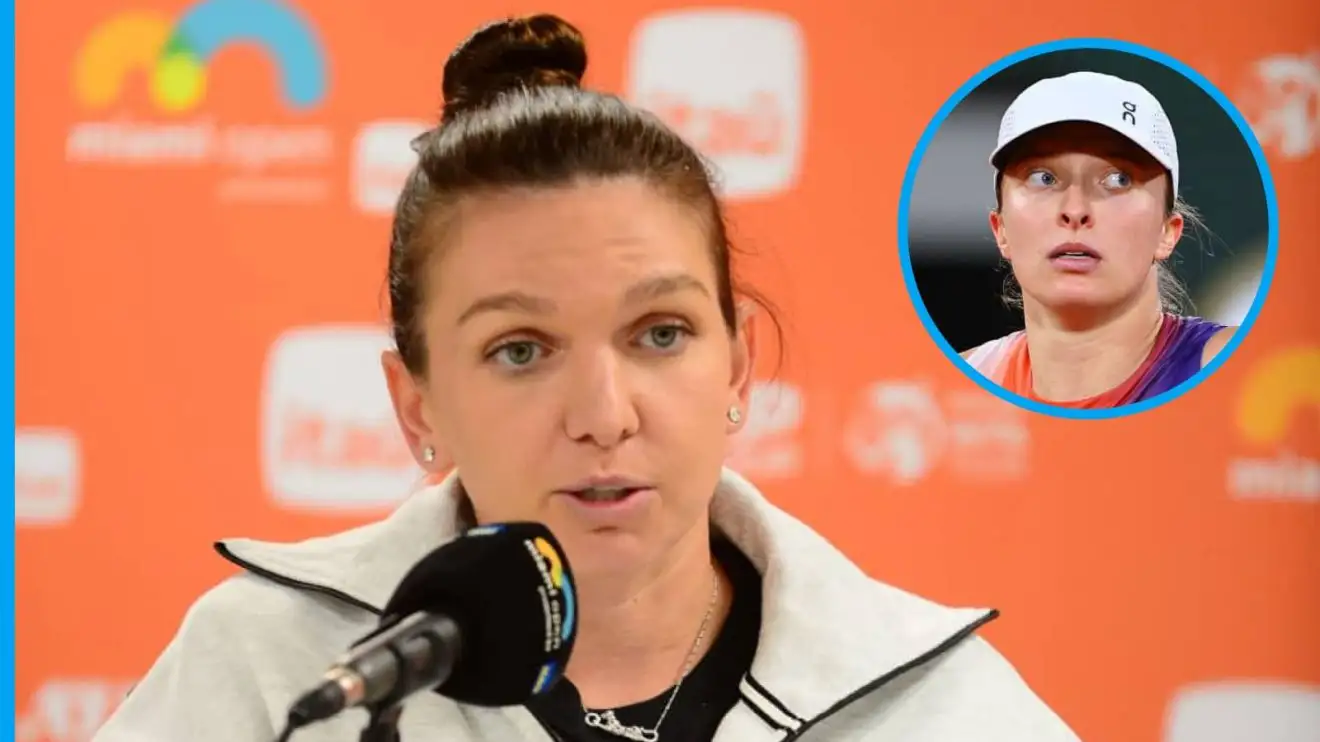
Simona Halep Criticizes ITIA Over Disparities in Doping Case Judgments
Simona Halep, the former world No. 1 and two-time Grand Slam champion, has voiced her strong disapproval of how doping cases in tennis are being handled, pointing out perceived inconsistencies. Specifically, Halep compared her case to recent incidents involving Iga Świątek and Jannik Sinner, describing the differential treatment as “unfair” and “unacceptable.” Her frustration underscores the mental and emotional toll of her two-year battle against a doping ban.
Halep’s Doping Case: A Recap
Halep’s troubles began in 2022 when she tested positive for Roxadustat, a prohibited blood-doping agent, during the US Open. The International Tennis Integrity Agency (ITIA) handed her a four-year suspension in September 2023. After an appeal to the Court of Arbitration for Sport (CAS), her ban was reduced to nine months, allowing her to return to professional tennis in March 2024. Despite her reinstatement, Halep had already endured a lengthy suspension from August 2022, leaving her sidelined for over 18 months.
Świątek and Sinner Cases: Points of Contention
Halep’s discontent reignited recently when ITIA revealed that Iga Świątek, a five-time Grand Slam champion and former world No. 1, tested positive for trimetazidine, a banned substance, in August 2024. Unlike Halep, Świątek received a one-month suspension after it was determined she bore “no significant fault or negligence.” The suspension was applied retroactively, with Świątek provisionally banned from September 12 to October 4. As a result, the Polish star is free to compete at the upcoming United Cup and Australian Open.
Halep also referenced Jannik Sinner’s doping case. In March, the men’s world No. 1 failed two tests for clostebol, an anabolic steroid. Sinner attributed the positive tests to a spray applied by his physiotherapist to treat a cut. An independent tribunal accepted his explanation, resulting in no suspension. However, the World Anti-Doping Agency (WADA) has since appealed to CAS, seeking a two-year ban for the Italian star.
Halep’s Reaction: “Big Pain” and Lost Sleep
In an emotional interview with Telegraph Sport, Halep expressed her deep frustration at the disparity in how these cases were handled.
“Big pain, big pain,” the Romanian said. “I felt like they [the ITIA] were unfair to me before, but now it’s even more. I was so, so upset and so sad when I saw the situation. It’s just unacceptable, from my point of view.”
Halep described losing sleep once again after hearing about Świątek’s case. “I lost my sleep again. I lost it for the two years during the process [of contesting her own doping ban], then I got it back. And now, after [what happened], for a few days, yeah, I lost it again. All the negative thinking, negative thoughts, it’s not easy to handle.”
While she refrained from directly naming Świątek, Halep clearly referenced her case, criticizing the seemingly lenient punishment. “The woman player – I don’t want to give her name, you know about who I’m talking about – she had the three-week suspension, then she played two events, and then she gets again suspension. What is this? I mean, I don’t understand. So I feel it is not fair.”
Struggles With Her Comeback
Halep’s return to the WTA Tour has been challenging. Since her reinstatement, she has played only five matches, struggling to regain her form and confidence.
“I didn’t expect it to be so difficult to come back,” Halep admitted. “I thought, ‘I know the feelings, I know how I have to train’ – but suddenly it was so difficult to manage the emotions before the matches. I have always been emotional before matches, but now I feel sick in the stomach again.”
She highlighted physical difficulties, explaining how her body has struggled to adapt to competitive match play after the long layoff. “When I did play matches, I felt a little bit soft [physically]. The steps that you have to do towards the ball, towards the corners, they were not there. I think the brain was not sending the right message to the legs. Every day I stay on the court, doing all what I did before. But when I start to play a match, it’s different. I played two tournaments, and for three days I was so sore. So this is my main goal: to get some matches, to get some wins, to get the confidence back.”
Wider Implications and Future Outlook
Halep’s criticism highlights a growing debate over fairness and consistency in how doping cases are adjudicated in professional tennis. The ITIA’s decisions in the Świątek and Sinner cases have fueled discussions about transparency and equal treatment, with some suggesting that high-profile players might be benefiting from preferential treatment.
For Halep, the emotional scars from her two-year ordeal remain fresh, even as she attempts to rebuild her career. Her case has also become a flashpoint for broader concerns about how governing bodies address doping violations and the balance between athlete accountability and institutional fairness.
As Halep works to regain her footing on the tour, her candid reflections may spark further scrutiny of the ITIA and CAS processes, potentially prompting calls for reform in how tennis handles doping cases in the future.
Leave a Reply